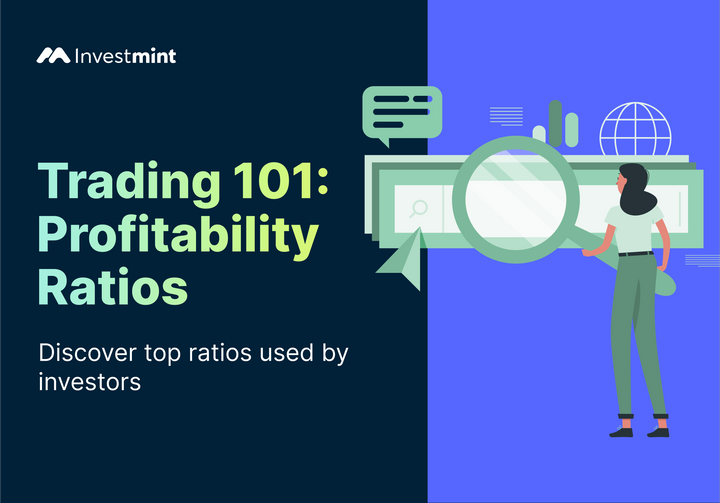Nifty Bees Explained: Guide On Investing With ETFs
Nifty Bees is an ETF that can be traded in the Indian stock market like other stocks. The ETF allows investors to trade the Nifty 50 index.

Introduction
If you could buy one stock from a company or a mix of stocks from 50 best-performing companies, which one would you choose? The latter, right?
That is precisely what Nifty Bees offer investors. Over the past five years, the Nifty 50 index, the base stock of nifty bees, exhibited an impressive compound annual growth rate (CAGR) of 17.6%, underscoring its resilience and potential for lucrative returns.
We’ll try to elaborate on the value of Nifty Bees through this article. Scroll down to know more.
What Is Nifty Bees?
The name “Nifty” originated from the word - National Stock Exchange Fifty. It is a popular stock market index in India, representing the top 50 companies listed on the National Stock Exchange (NSE). What’s that got to do with Nifty Bees? Well, it is an exchange-traded fund (ETF) that tracks the performance of the Nifty 50 index.
How Does Nifty Bees Work?
By investing in Nifty Bees, investors gain exposure to a diversified portfolio of the top 50 companies in India without needing to buy individual stocks separately. Moreover, The ETF provides liquidity, ease of trading, and cost-effectiveness to retail investors.
Through an arbitrage mechanism, the ETF's market price closely tracks its NAV, ensuring fair pricing for investors.
Nifty Bees vs Nifty50
The primary difference between the two is that Nifty 50 is not directly tradable as it is an index. Investors cannot buy or sell it like individual stocks or ETFs. But Nifty Bees is directly tradable as an ETF, provided you have a Demat Account.
Further, as an index, Nifty 50 does not have a price. However, investors may incur expenses while investing in mutual funds or ETFs based on the index. Based on the same index, Nifty Bees typically has a lower expense ratio than mutual funds.
How To Invest In Nifty Bees?
You can follow these steps to invest in nifty bees:
- It is mandatory to have a demat account to invest in Nifty Bees. So visit your nearest bank or online website to open your demat account.
- Go through various stock brokers available online, such as Groww, Zerodha, Angel Investors, etc., and select the one that offers competitive commission rates and reliable customer support.
- Invest the desired capital in your account to trade with ETFs.
- To know more, research Nifty Bees to understand its historical performance, expense ratio, and the companies it represents.
- Login to your stock brokerage account and place a buy order for the preferred number of units of Nifty Bees ETFs.
- Ensure to keep track of Nifty Bees’ performance to decide when to buy or sell.
You can also invest in a Systematic Investment Plan (SIP) in Nifty Bees to avoid investing a lump sum amount on your first go.
Nifty Bees Advantages And Disadvantages
Nifty Bees is the best investment for those who want to test the waters before entering full-time into trading. However, this ETF fund has its advantages and disadvantages.
Advantages:
- Diversification: Nifty Bees provides exposure to a diverse portfolio of India's top 50 companies listed on the National Stock Exchange (NSE). This diversification helps spread investment risk across different sectors and companies.
- Cost-Effectiveness: Nifty Bees typically has a lower expense ratio than actively managed mutual funds. Compared to other investments, the annual expense ratio, including management fees, is 0.80% of the Daily Average Net Assets, which is very low.
- Liquidity: As Nifty Bees is an exchange-traded fund, it offers liquidity to investors. During the trading day, it can be bought or sold at market prices, which allows investors to manage their investments more effectively.
- Transparent: Nifty Bees allows investors to easily access information about its holdings, net asset value (NAV), and historical performance, ensuring transparency.
- Dividends: Nifty Bees may receive dividends from the companies in its portfolio, which are typically reinvested into the ETF, potentially increasing overall returns.
Disadvantages:
- Market Risk: Like any investment in the stock market, Nifty Bees is subject to market fluctuations and economic conditions. The value of the ETF can go up or down based on the performance of the underlying Nifty 50 index.
- Tracking Error: While Nifty Bees aims to replicate the performance of the Nifty 50 index, it may experience minor tracking errors due to factors such as fees, rebalancing, and market liquidity.
- Market Dependency: The performance of Nifty Bees is directly linked to the performance of the underlying Nifty 50 index. External factors, company-specific events, and changes in market sentiment can impact the ETF's returns.
- Intraday Price Fluctuations: Nifty Bees price can experience intraday fluctuations based on supply and demand dynamics, leading to potential short-term price volatility.
- Exchange Risk: Investors trading Nifty Bees on international exchanges may be exposed to currency exchange rate fluctuations, which can affect the overall returns.
Is Nifty Bees A Good Investment?
Short answer - it depends.
Investing in Nifty Bees or any other equity-based investment usually benefits from a long-term approach. The ETF might be a good investment opportunity if you plan to invest for an extended period. Generally, it is considered a good investment because it has low cost, lesser risk, and a decent reward.
FAQs
Q. Can I invest in Nifty Bees with a small amount of capital?
One of the advantages of Nifty Bees is that it allows investors to start with a small amount of capital. You can choose to buy one unit of Nifty Bees, making it accessible to retail investors with limited funds.
Q. Can I invest in Nifty Bees through a Systematic Investment Plan (SIP)?
Dome mutual fund companies offer Systematic Investment Plans (SIPs) in Nifty Bees. SIP allows investors to invest a fixed amount regularly, benefiting from rupee cost averaging and disciplined investing.
Q. Is there any specific time to invest in Nifty Bees?
Nifty Bees can be bought and sold on the stock exchange during market hours, just like individual stocks. There is no specific timing to invest, but investors should consider their investment goals, risk tolerance, and market conditions before making investment decisions.
Want to receive the next blog in your mail? Click on the subscribe button and receive the next blog in your mail.



